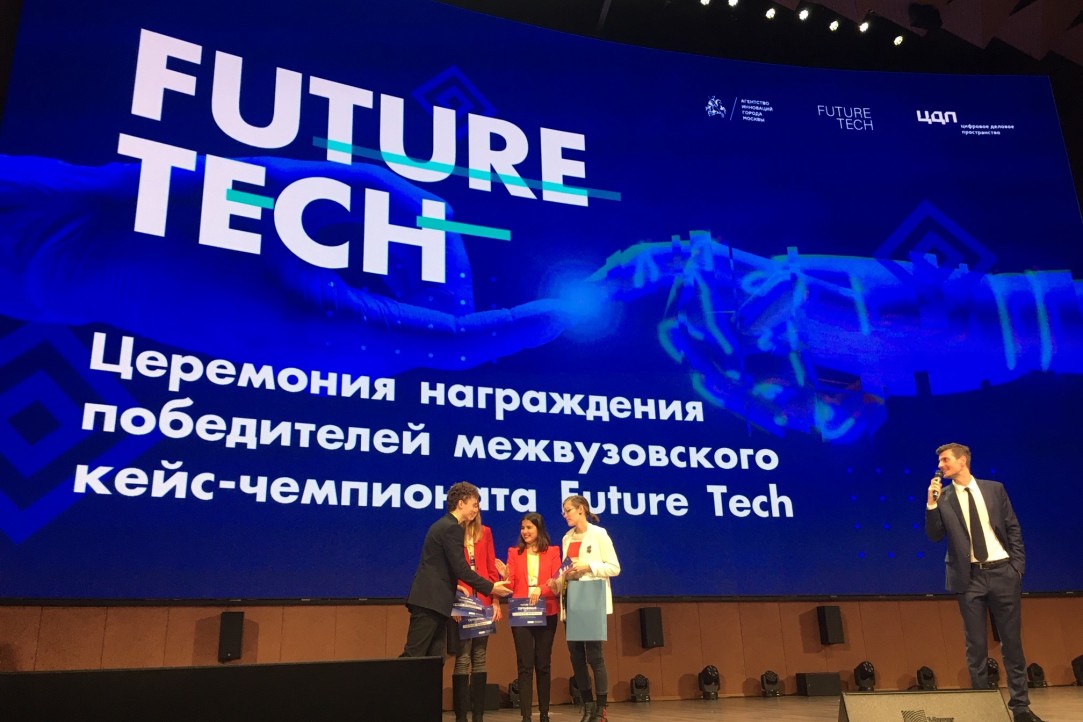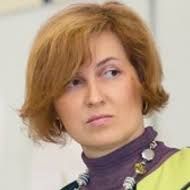Two HSE Student Teams Win Future Tech Case Championship

Future Tech, an interuniversity case championship organized by the Moscow City Innovation Agency, has announced its results. 32 university teams from eight Russian cities participated in the competition. The awarding ceremony took place at the Digital Business Space on Pokrovka.
The case championship consisted of two stages – the selection and the finals, with each lasting two weeks. Based on the selection stage results, each university sent its two best teams to the finals. 80 partner companies developed 150 business cases for the championship in three tracks: humanities, natural sciences, and technology. The focus was on small and medium-sized innovative company practices. On all stages, the participants collaborated with professionals of the companies and learnt from their experiences in the search for strategic solutions in business projects.
According to Ekaterina Brazhnikova, deputy CEO of the Moscow City Innovation Agency, today, universities are eager to include business cases in their programmes so that the students not only write papers, but develop real-life products that companies can put into use. There are many examples of Moscow companies using solutions developed by students, and for the latter, this kind of award has been more important than the prizes and gifts awarded at case championships.
Two HSE University teams took two of the three prize-winning places in the finals of Future Tech. They received mentorship support from the HSE Case Study Centre, which organized the university-level stage of the championship.
The Case Study Centre is a new department at the HSE Graduate School of Business, which aims to:
Generate expertise in case-based learning;
Create a pilot platform for the development and validation of Russian cases;
Coordinate and provide methodological support for case championships for different audiences.
The first team, led by Anton Moskatov, was from the Faculty of Economic Sciences. It developed a financial model for different franchise options for Sniejik (a snowmobile rental company), which was awarded as the best solution according to businesses and experts.
The second team was made up of students from the Faculty of Economic Sciences, the Faculty of World Economy and International Affairs, and the Graduate School of Business. It suggested the best solution in the natural sciences track for Gazochim Techno company. The case was about determining the feasibility criteria for a gas-processing plant and its optimal configuration. The team captain is Valeria Gladkova, second-year undergraduate student of the Faculty of Economic Sciences.
There are plans for members of the two teams to meet Vice Rector Valeria Kasamara to discuss opportunities for further HSE student participation in projects aimed at the development of entrepreneurial skills.
Anna Morozova, Director of the Case Study Centre, HSE Graduate School of Business

The case-based learning method was first used at Harvard Business School almost a century ago, and it has been successfully used at the world’s best universities since then. Students have demonstrated a huge interest in cases. Cases help students develop their entrepreneurial thinking, and solving cases for real companies gives them the chance to make a statement on the job market and find a good job. The Future Tech case championship provides such opportunities, and it is very rewarding that HSE students have been successful again: they have demonstrated the ability to work on a project, good decision-making skills, the ability to assess business situations at large, and preparedness for future cooperation with companies.
Anna Morozova

